Renault Express VS Vauxhall Mokka – Specs, Efficiency & Price Comparison
Find out now which car fits your needs better!
The Renault Express (Cargo Van) is powered by a Diesel or Petrol engine and comes with a Manuel transmission. In comparison, the Vauxhall Mokka (SUV) features a Petrol, Electric or Petrol MHEV engine and a Automatic or Manuel gearbox.
When it comes to boot capacity, the Renault Express offers , while the Vauxhall Mokka provides 350 L – depending on what matters most to you. If you’re looking for more power, you’ll need to decide whether the 102 HP of the Renault Express or the 156 HP of the Vauxhall Mokka suits your needs better.
There are also differences in efficiency: 4.60 L vs 15.40 kWh4.90 L. In terms of price, the Renault Express starts at 17100 £, while the Vauxhall Mokka is available from 22900 £.
Compare all the key specs now and find out which model fits your lifestyle best!
Renault Express
The Renault Express brings a fresh design to the van segment, combining practicality with modern styling cues. Its spacious interior and clever storage solutions make it an ideal choice for both business and leisure purposes. With a focus on comfort and functionality, this vehicle stands out as a versatile option for those in need of reliable transportation.
detailsVauxhall Mokka
Der Opel Mokka beeindruckt mit seinem markanten Design und einem Innenraum, der modernen Komfort mit intuitiver Technologie kombiniert. Das Fahrzeug bietet ein dynamisches Fahrerlebnis und eignet sich sowohl für die Stadt als auch für längere Fahrten. Mit seiner effizienten Motorisierung setzt der Mokka zudem auf zeitgemäße Nachhaltigkeit.
details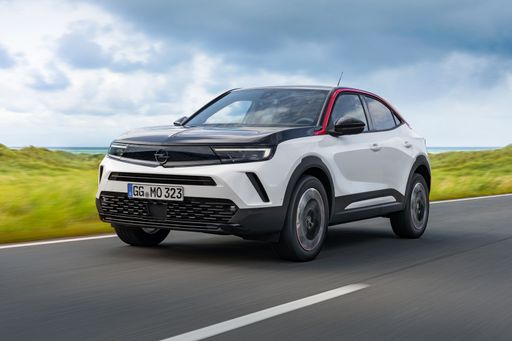 @ media.stellantis.com
@ media.stellantis.com
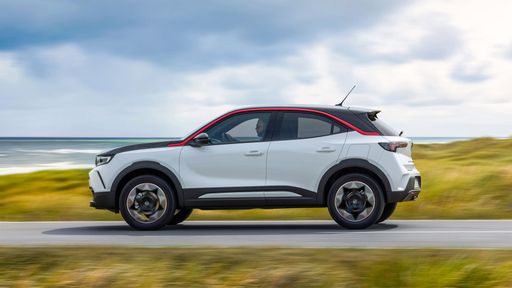 @ media.stellantis.com
@ media.stellantis.com
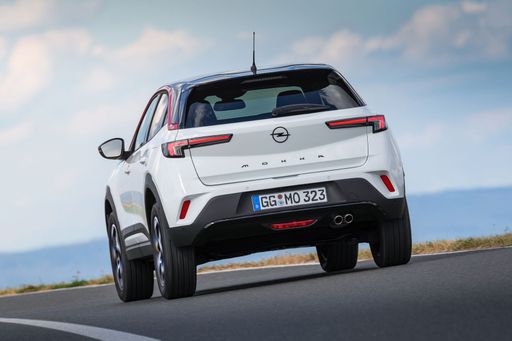 @ media.stellantis.com
@ media.stellantis.com
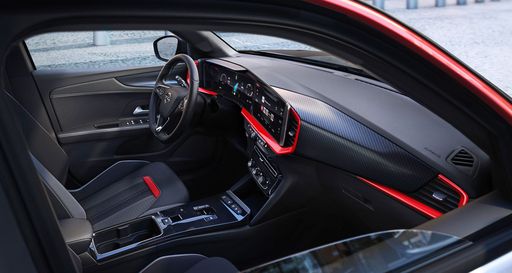 @ media.stellantis.com
@ media.stellantis.com
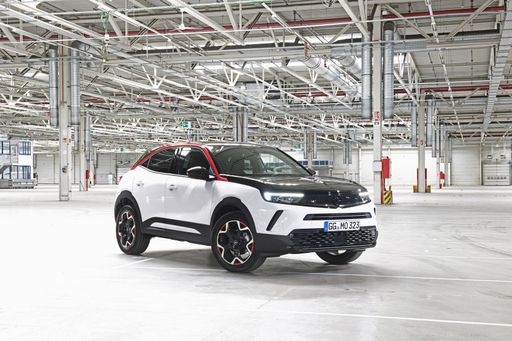 @ media.stellantis.com
@ media.stellantis.com

|
|
|
|
|
Costs and Consumption |
|
|---|---|
|
Price
17100 - 19500 £
|
Price
22900 - 33400 £
|
|
Consumption L/100km
4.6 - 6.6 L
|
Consumption L/100km
4.9 - 6.1 L
|
|
Consumption kWh/100km
-
|
Consumption kWh/100km
15.40 kWh
|
|
Electric Range
-
|
Electric Range
403 km
|
|
Battery Capacity
-
|
Battery Capacity
51 kWh
|
|
co2
121 - 149 g/km
|
co2
0 - 138 g/km
|
|
Fuel tank capacity
50 L
|
Fuel tank capacity
44 L
|
Dimensions and Body |
|
|---|---|
|
Body Type
Cargo Van
|
Body Type
SUV
|
|
Seats
2
|
Seats
5
|
|
Doors
4
|
Doors
5
|
|
Curb weight
1296 - 1390 kg
|
Curb weight
1294 - 1615 kg
|
|
Trunk capacity
-
|
Trunk capacity
310 - 350 L
|
|
Length
4393 mm
|
Length
4150 mm
|
|
Width
1775 mm
|
Width
1787 mm
|
|
Height
1811 mm
|
Height
1515 - 1535 mm
|
|
Payload
575 - 700 kg
|
Payload
388 - 400 kg
|
Engine and Performance |
|
|---|---|
|
Engine Type
Diesel, Petrol
|
Engine Type
Petrol, Electric, Petrol MHEV
|
|
Transmission
Manuel
|
Transmission
Automatic, Manuel
|
|
Transmission Detail
Manual Gearbox
|
Transmission Detail
Automatikgetriebe, Schaltgetriebe, Automat. Schaltgetriebe (Doppelkupplung)
|
|
Drive Type
Front-Wheel Drive
|
Drive Type
Front-Wheel Drive
|
|
Power HP
75 - 102 HP
|
Power HP
130 - 156 HP
|
|
Acceleration 0-100km/h
11.9 - 16.3 s
|
Acceleration 0-100km/h
8.2 - 9 s
|
|
Max Speed
100 - 167 km/h
|
Max Speed
150 - 209 km/h
|
|
Torque
200 - 240 Nm
|
Torque
230 - 260 Nm
|
|
Number of Cylinders
4
|
Number of Cylinders
3
|
|
Power kW
55 - 75 kW
|
Power kW
96 - 115 kW
|
|
Engine capacity
1332 - 1461 cm3
|
Engine capacity
1199 cm3
|
General |
|
|---|---|
|
Model Year
2021
|
Model Year
2024 - 2025
|
|
CO2 Efficiency Class
D, E
|
CO2 Efficiency Class
E, D, A, C
|
|
Brand
Renault
|
Brand
Vauxhall
|
Renault Express
Introduction to the Renault Express
The Renault Express, a compact van from the renowned French manufacturer, continues to make a lasting impression in the versatile light commercial vehicle segment. With its practical design and array of engine configurations, it caters to a wide spectrum of business needs, offering both diesel and petrol variants. As we delve into the details, we'll explore the specifications and innovations that set the Renault Express apart from its competitors.
Efficient Powertrains
The Renault Express boasts a diverse range of engines tailored for efficiency and performance. At the core, it features a selection of both diesel and petrol engines, with outputs ranging from 75 PS to 102 PS. This ensures that operators can select a powertrain that precisely matches their performance requirements and budget constraints.
Whether you opt for the BLUE dCi diesel engine or the TCe petrol variant, the Renault Express promises robust performance combined with impressive fuel economy ranging from 4.6 to 6.6 L/100km. The manual transmission and front-wheel drive configuration further contribute to its efficient operation.
Practicality and Usability
Designed with practicality in mind, the Renault Express excels in usability. With a load capacity ranging from 575 to 700 kg, it provides adequate cargo space for business users. Its compact dimensions—measuring 4,393 mm in length, 1,775 mm in width, and 1,811 mm in height—ensure it remains manoeuvrable even in tight urban environments.
The van’s 50 L fuel tank complements its fuel-efficient nature, minimizing the frequency of refuelling stops and enhancing productivity.
Comfortable and Functional Interior
Inside the Renault Express, a no-nonsense cabin offers comfort and functionality across its two-seat configuration. The straightforward yet ergonomic layout is designed for those who spend significant time on the road. Essential features are included to support the driver, ensuring a pleasant experience even during long journeys.
Safety and Innovation
Renault has not compromised on safety with the Express. With modern safety protocols, the van aims to offer peace of mind to its occupants. Although it's built primarily for utility, the inclusion of essential safety features demonstrates Renault’s commitment to protecting its drivers and cargo.
Innovation is further represented through its environmental considerations, such as the CO2 efficiency class spanning D to E, and emissions ranging from 121 to 149 g/km. This conscientious engineering underscores Renault’s efforts towards a more sustainable future.
Final Thoughts
In conclusion, the Renault Express is a testament to Renault's expertise in crafting efficient, reliable light commercial vehicles. Its blend of power, economy, and practicality makes it a competitive choice for businesses seeking a dependable partner on the road. With a starting price point that remains accessible, the Renault Express continues to deliver exceptional value to its customers, making it a standout in the small van category.
Vauxhall Mokka
Der neue Opel Mokka: Ein spektakuläres Comeback
Der Opel Mokka hat in den letzten Jahren eine bemerkenswerte Transformation durchlaufen. Das kompakte SUV ist nicht nur optisch ein Hingucker, sondern überzeugt auch mit technischer Raffinesse und innovativen Features. Die aktuelle Modellreihe bietet sowohl herkömmliche Benzinmotoren als auch moderne Elektro- und Hybridantriebe, die auf nachhaltige Mobilität setzen.
Vielfalt in der Motorisierung
Beim Opel Mokka stehen verschiedene Motorvarianten zur Auswahl, die auf unterschiedliche Fahrgewohnheiten und Bedürfnisse zugeschnitten sind. Die Benzinmotoren, ausgelegt auf 100 bis 130 PS, überzeugen mit einem angenehmen Fahrverhalten und einem Verbrauch von 5,7 bis 6,1 Litern pro 100 Kilometer. Wer mehr Effizienz wünscht, kann sich für den 48V Mild-Hybrid-Antrieb entscheiden, der mit einem Verbrauch von nur 4,9 Litern pro 100 Kilometer besonders umweltfreundlich unterwegs ist.
Elektrifizierung mit dem Opel Mokka Electric
Ein Highlight der Modellreihe ist der Opel Mokka Electric mit einer beeindruckenden elektrischen Reichweite von bis zu 407 Kilometern. Angetrieben von einem 136-PS-Motor verbraucht das Elektro-SUV nur 15,5 bis 16,2 kWh pro 100 Kilometer. Der Mokka Electric ist mit modernster Batterietechnologie ausgestattet, die schnelle Ladezeiten ermöglicht und Fahrspaß ohne Kompromisse bietet.
Technologie im Zentrum
Der Opel Mokka brilliert nicht nur durch seine effizienten Motoren, sondern auch durch seine fortschrittlichen Technologien. Das digitale Cockpit bietet alles, was das Herz begehrt: ein hochauflösendes Infotainmentsystem, das sich nahtlos mit Smartphones verbindet, sowie eine Vielzahl an Assistenzsystemen, die das Fahren sicherer und angenehmer gestalten.
Komfort und Design: Ein Zusammenspiel der Extraklasse
Die moderne Außengestaltung des Opel Mokka unterstreicht seine dynamische Persönlichkeit. Mit einer Länge von 4151 mm, einer Breite von 1785 mm und einer Höhe von 1534 mm präsentiert sich der Mokka kompakt, aber geräumig. Der Innenraum wurde für maximalen Komfort und Flexibilität konzipiert, mit bis zu 350 Litern Kofferraumvolumen für all Ihre Bedürfnisse.
Opel Mokka: Wirtschaftlich und umweltfreundlich
Das Kompakt-SUV überzeugt nicht nur mit tollen Fahrleistungen, sondern auch mit einer exzellenten CO₂-Effizienzklasse, die je nach Motorvariante von A bis E reicht. Mit einem Einstiegspreis von 26.550 Euro bietet der Opel Mokka faire Konditionen für jeden Geldbeutel, wobei die monatlichen Kosten überschaubar bleiben. Außerdem punktet er mit geringen Kosten pro gefahrenem Kilometer, die zwischen 36,7 und 43,2 Cent liegen.
Beworben als innovativer Schritt in die Zukunft der Mobilität, etabliert sich der Opel Mokka als vielseitiges Fahrzeug für Stadt und Land gleichermaßen. Mit seiner Mischung aus Leistung, Technologie und Komfort ist er bereit, hohe Maßstäbe in der SUV-Kategorie zu setzen.
The prices and data displayed are estimates based on German list prices and may vary by country. This information is not legally binding.
